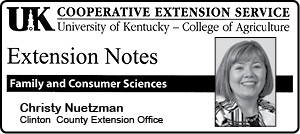March is National Nutrition Month

Simple Tips from Registered Dietitians Make It Easy to ‘Get Your Plate in Shape’ This National Nutrition Month
Media Contacts: Ryan O’Malley, Allison MacMunn
800/877-1600, ext. 4769, 4802 media@eatright.org
During National Nutrition Month® and beyond, the Academy of Nutrition and Dietetics (formerly the American Dietetic Association) encourages everyone to include healthy foods from all food groups through this year’s theme: “Get Your Plate in Shape.”
“Vegetables, fruits, whole grains, lean proteins and low-fat dairy products contain the nutrients we need to maintain healthy lifestyles,” says registered dietitian and Academy Spokesperson Andrea Giancoli. “Make sure your eating plan includes foods from all the food groups and in appropriate portions. USDA’s MyPlate is a great tool to guide and help us be mindful of the foods that make up our balanced eating plan.”
Giancoli offers the following recommendations to “Get Your Plate in Shape”:
Make half your plate fruits and vegetables.
* Eat a variety of vegetables, especially dark-green, red and orange varieties, as well as beans and peas.
* When buying canned vegetables, choose “reduced sodium” or “no salt added” whenever possible. Rinsing whole varieties like beans, corn and peas can also reduce sodium levels.
* Dried and frozen fruits and those canned in water or their own juice are good options when fresh varieties are not available.
* Make sure every meal and snack has at least one fruit or vegetable or both.
Make at least half your grains whole.
* Choose brown rice, barley and oats and other whole grains for your sides and ingredients.
* Switch to 100-percent whole-grain breads, cereals and crackers.
* Check the ingredients list on food packages to find foods that are made with whole grains.
Switch to fat-free or low-fat milk.
* Fat-free and low-fat milk have the same amount of calcium and other essential nutrients as whole milk, but less fat and fewer calories.
* If you are lactose intolerant, try lactose-free milk or a calcium-fortified soy beverage.
Vary your protein choices.
* Eat a variety of foods each week from the protein food group like seafood, nuts and beans, as well as lean meat, poultry and eggs.
* Eat more plant-based proteins such as nuts, beans, whole grains and whole soy foods like tofu and edamame.
* At least twice a week, make fish and seafood the protein on your plate.
* Keep meat and poultry portions lean and limit to three ounces per meal.
Cut back on sodium and empty calories from solid fats and added sugars.
* Drink water instead of sugary drinks like regular sodas, fruit-flavored drinks and sweetened teas and coffees. Choose 100-percent fruit juice.
* Compare sodium in foods and choose those with the least amount listed on the Nutrition Facts Panel.
* Season foods with spices or herbs instead of salt.
* Select lean cuts of meat or poultry and fat-free or low-fat dairy products.
* Use heart-healthy oils like olive, canola and sunflower oil in place of butter or shortening when cooking.
Giancoli recommends cooking more often at home, where you are in control of what is in your food. “And don’t forget that exercise and healthful eating are crucial to maintaining a healthy lifestyle,” Giancoli says. “Choose activities you enjoy like going for a walk with your family, joining a sports team, dancing or playing with your children. If you don’t have a full 30 minutes, carve out 10 minutes three times a day. Every bit adds up and health benefits increase the more active you are.”
As part of National Nutrition Month, the Academy of Nutrition and Dietetics’ National Nutrition Month website includes helpful tips, recipes, fun games, promotional tools and nutrition education resources, all designed to spread the message of good nutrition around the “Get Your Plate in Shape” theme.
For more information on National Nutrition Month and various Extension programs on nutrition, contact the Clinton County Extension Office at (606) 387-5404.
Educational programs of the Cooperative Extension Service serve all people regardless of race, color, sex, religion, disability or national origin.
Stacy Smith is new Extension Nutrition Education Program Assistant for Clinton
Hello! Would you like to know more about planning meals? Stretching your food dollars? New and nutritious recipes for your family? Eating better for better health? If so, then you may want to know more about this program.
The Nutrition Education Program (NEP) is a FREE service of the University of Kentucky Cooperative Extension Service, and is available to families raising young children, pregnant or parenting teens and seniors.
My name is Stacy Smith and I am the new NEP assistant in the county, and am available to teach lessons to groups on topics such as the food guide, nutrients needed for health, food safety, feeding your children, gardening, food preparation, and budgeting your food dollars. Also, I can help you locate resources you may need.
Please feel free to call me at the Clinton County Extension Service Office at (606) 387-5404. I look forward to hearing from you!
Educational programs of the Cooperative Extension Service serve all people regardless of race, color, sex, religion, disability or national origin.March is National Nutrition Month

